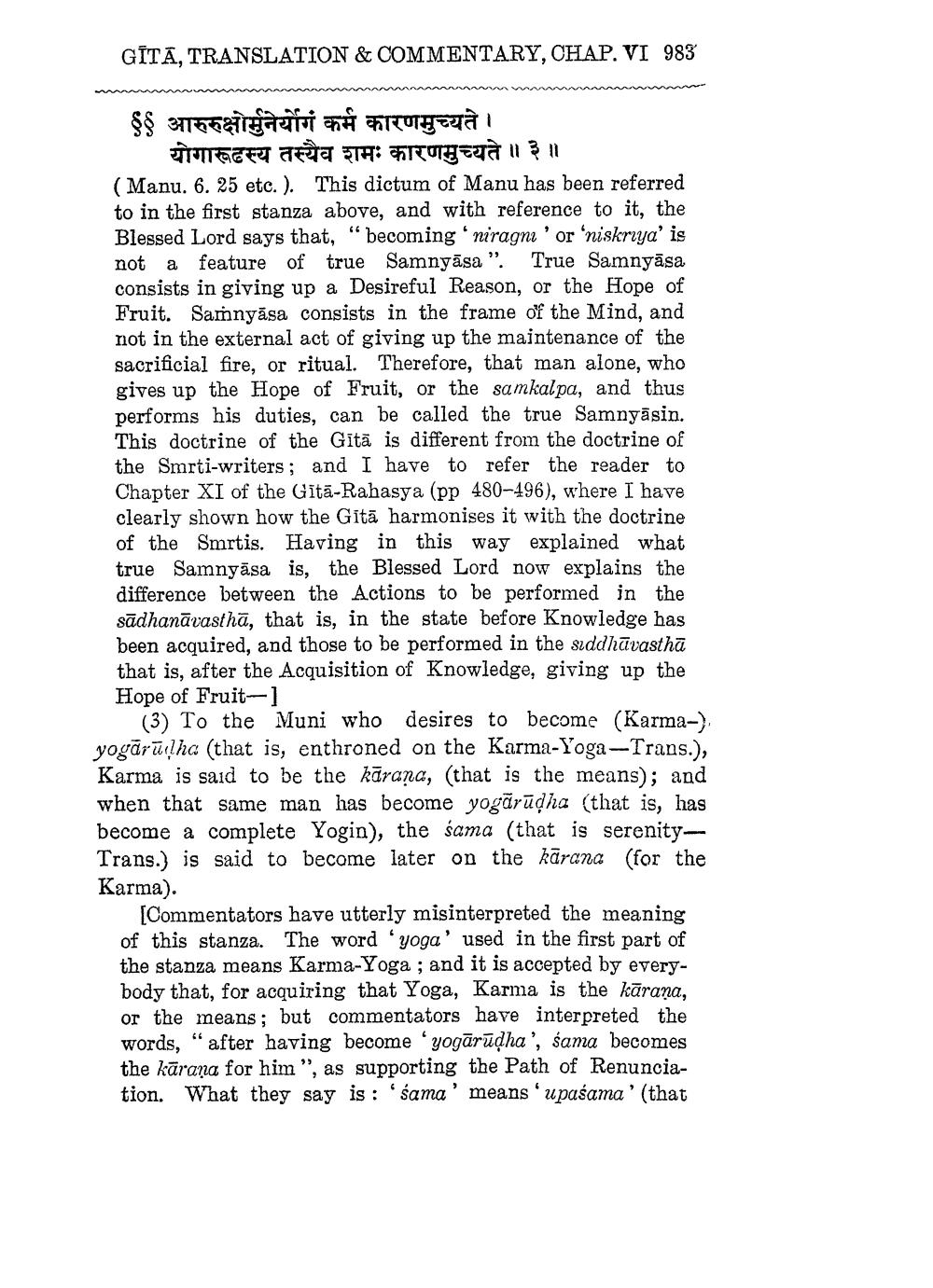________________
GĪTĀ, TRANSLATION & COMMENTARY, CHAP. VI 983
$आरुरुक्षोर्मुनेर्योगं कर्म कारणमुच्यते।
योगारूढस्य तस्यैव शमः कारणमुच्यते ॥३॥ (Manu. 6. 25 etc.). This dictum of Manu has been referred to in the first stanza above, and with reference to it, the Blessed Lord says that, “becoming ' niragni ' or 'niskriya' is not a feature of true Samnyāsa”. True Samnyāsa consists in giving up a Desireful Reason, or the Hope of Fruit. Samnyāsa consists in the frame of the Mind, and not in the external act of giving up the maintenance of the sacrificial fire, or ritual. Therefore, that man alone, who gives up the Hope of Fruit, or the samkalpa, and thus performs his duties, can be called the true Samnyāsin. This doctrine of the Gītā is different from the doctrine of the Smrti-writers; and I have to refer the reader to Chapter XI of the Gītā-Rahasya (pp 480-496), where I have clearly shown how the Gitā harmonises it with the doctrine of the Smrtis. Having in this way explained what true Samnyāsa is, the Blessed Lord now explains the difference between the Actions to be performed in the sādhanāvasthā, that is, in the state before Knowledge has been acquired, and those to be performed in the siddhāvastha that is, after the Acquisition of Knowledge, giving up the Hope of Fruit-1
(3) To the Muni who desires to become (Karma-), yogārūılha (that is, enthroned on the Karma-Yoga --Trans.), Karma is said to be the karang, (that is the means); and when that same man has become yogārūdha (that is, has become a complete Yogin), the sama (that is serenityTrans.) is said to become later on the karang (for the Karma).
[Commentators have utterly misinterpreted the meaning of this stanza. The word 'yoga' used in the first part of the stanza means Karma-Yoga ; and it is accepted by everybody that, for acquiring that Yoga, Karma is the kārana. or the means; but commentators have interpreted the words," after having become yogārūdha', sama becomes the kārana for him ", as supporting the Path of Renunciation. What they say is : 'sama' means 'upasama' (that




